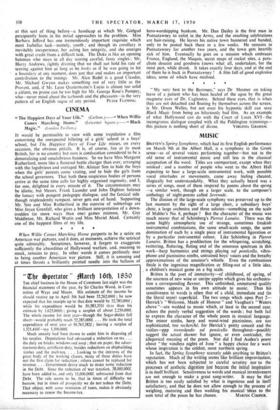"Mhe fopectator. " March 16th, 1850
THE chief business in the House of Commons last night was the financial statement of the year, by Sir Charles Wood, in Com- mittee of Ways and Means. His estimate of the income he should receive up to April 5th had been 52,262,0001; he now expected that his receipts up to that date would be 52,785,000/ ; while his expenditure would be 50,583,3511 (less than his estimate by 1,625,000/) ; giving a surplus of about 2,250,0001. The whole income for next year—though the Sugar-duties fall short—would probably reach 52,285,000/. ... He took the total expenditure of next year at 50,763,5821; leaving a surplus of 1,521,4101—say 1,500,000/.
Much anxiety had been shown to assist him in disposing of his surplus. Deputations had advocated a reduction on tea ... the duty on bricks, windows and soap ; that on paper, the adver- .tisement-duty, certificate-duty, besides reductions on shipbuilding timber and the malt-tax. . . . Looking to the interests of the great body of the working classes, many of these duties have not the first claim for reduction ; others cannot be replaced for revenue.. .. Government desire much to make some reduction in the Debt. Since the reduction of war taxation, 38,000,0001. have been added to, and only 11,000,000/. subtracted from that Debt. The rule seems to be, that in times of difficulty we borrow, but in times of prosperity we do not reduce the Debt. That object, with some remission of taxes, makes it obviously necessary to renew the Income-tax.


































 Previous page
Previous page